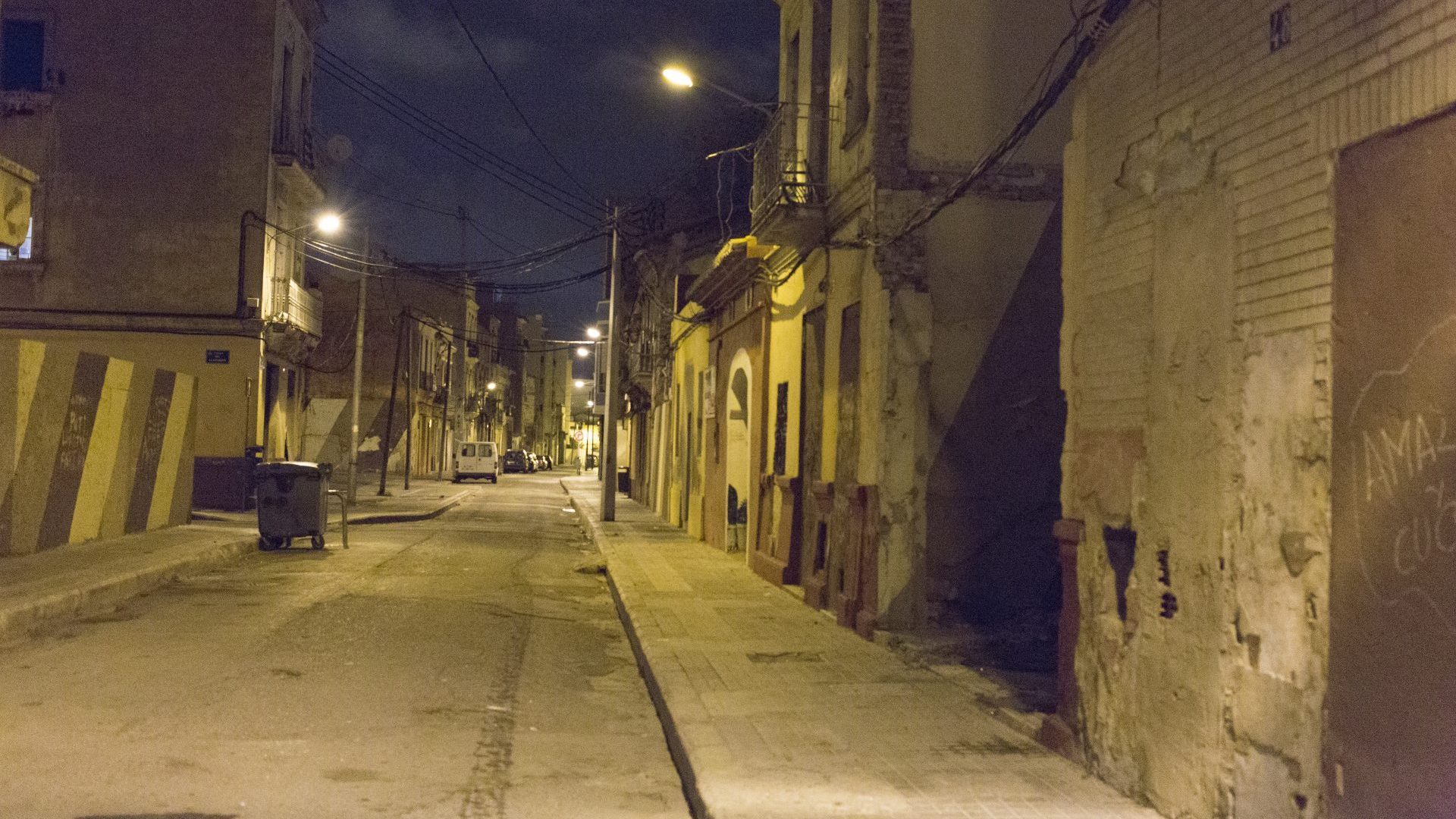In El Cabanyal, Valencia’s old fisherman’s quarter, the sun sets down an alleyway in streaks of pink and orange. There is a gentle breeze. A moped coughs and sputters by. Locals sit on stoops and deckchairs, as darkness swallows the last of the daylight. This part of El Cabanyal, away from the beach, is a labyrinth of dilapidated buildings and empty lots. The paint is peeling, the facades crumbling like chalk. A stray cat slinks past. A hole in the wall reveals a living room, a young girl, the canned laughter of a television.
A couple of streets over are rows of multi-coloured, art nouveau-tiled townhouses. The trendy coffee shops and burger joints are filled with moustachioed, Hawaiian shirt-clad hipsters who drink craft beer and cocktails, and eat fusion food served on chopping boards. The guiris, as locals call them, referring to northern European tourists, stream by on their rented bikes, sun-tinged, in their sandals. A group of blondes pose for a selfie by a blue mosaiced building. Their German chatter flutters through the alleys.
Pablo, 52, sits on a nearby bench. “The area has become much more touristy,” he explains, in particular “the number of apartments dedicated to tourism and Airbnb.” Rent, he says, “has gone up a lot”. Traditionally a working-class neighbourhood, an influx of young, online guiris – Britons, Germans, Dutch and Scandinavians mostly – has arrived in El Cabanyal. Many are here to work remotely: they are the borderless, MacBook-clutching “digital nomad” generation – not your regular summer holidaymakers. “It is very noticeable that the foreigners come here not only in summer, but also during the winter,” Pablo says.
The post-pandemic surge in remote working is affecting not only El Cabanyal, but Valencia city centre, too. Many digital nomads congregate in the neighbourhoods of Ruzafa and El Carmen. There you are now almost as likely to hear English as you are Spanish or Valencian, and its streets are lined with the lockboxes of Airbnb apartments. Co-working spaces have popped up. Rents have risen. According to figures from the Universitat Politècnica de València cited in local media, last year rental prices hit historic highs in the city, 9.9% up year on year. Rents are now 28% above pre-pandemic level.
In a local bookshop, the Spanish and Valencian sections are now almost matched by the English collection. The owner had to supplement his stock because “we’ve felt a boom in tourism and also in English speakers coming to live here,” he says. “The big increase that I’ve noticed are digital nomads… people who are either coming to buy places and live here part-time, or getting an Airbnb for a month or three months.” El Cabanyal “went from very cheap to one of the more expensive neighbourhoods in Valencia.”
For digital nomads doing a few months of remote working, they reap the advantages of Spanish life (the climate, the comparatively affordable cost of living, the cuisine, the pace of life) while inflating the local rental market with their foreign salaries. Few speak Spanish. Few are even here long enough to learn. And most digital nomads who do a month or two working from a beachside Airbnb pay no tax.
Those who come for longer-term stays on Spain’s new digital nomad visa do pay some tax, but are given significant tax breaks. Their foreign purchasing power is a welcome boost to the local economy, but contributes to the rent spiral that prices locals out of their own area.
Later on that night, the sound of house music pulses through the walls of an “independent creative space” in an abandoned factory. The crowd is young, hip and international, the decor industrial and minimalist. Some have come for a “digital nomad meetup”. Escaping snippets of conversation are mostly in fluent, non-native English and replete with internet jargon: there’s talk of networking, getting traction, collaborating, touching base. “It’s so cheap here,” someone says.
El Cabaynal is cheap, in comparison to neighbourhoods in northern European cities. It’s close to the beach, has a rough charm and an Instagrammable aesthetic. But digital nomads enjoy all of the fun with none of the commitment. Many will move on in a few months’ time, to Tallinn, perhaps, or Lisbon. But the locals, just a few streets away, will remain.



